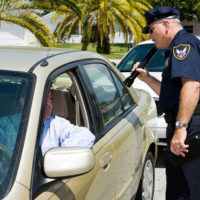Five DUI Roadblock Requirements In Florida

Typically, police officers must have reasonable suspicion of criminal activity before they may detain motorists. This standard is very low, and the United States Supreme Court has watered it down even further, with recent decisions like 2016’s Utah v. Strieff. However, the underlying doctrine is still in effect.
But when it comes to DUI arrests, there is a major exception to this rule. Police officers may establish roadside checkpoints. Florida law allows them to pull over motorists without any cause and possibly arrest them for DUI. Because of this power, roadblocks must meet certain criteria. A lapse in any one area could invalidate the checkpoint.
Supervisor Level Decisions
Officers in the field may have no discretion when it comes to any setup or operational details. All aspects of the checkpoint must be handed down from on high. That includes the rationale for a roadblock at that time and at that place, as well as all the nuts-and-bolts details. Generally, a desk sergeant or other person of similar rank is not a “supervisor.” Such an individual must be a lieutenant or captain at the minimum. If the supervisor is the chief of police or an assistant, that’s even better.
Safety Precautions
If left to their own devices, many Port St. Lucie officers would like to position checkpoints on highway off-ramps and other high-traffic areas. But such a place is clearly unsafe. Furthermore, the roadblock must be clearly visible. A DUI checkpoint cannot be a modified speed trap. Officers in official cars and uniforms must be clearly visible. Furthermore, the signage must begin well away from the checkpoint, so motorists have a chance to slow down.
Adequate Warning
On a similar note, signs like “DUI Checkpoint Ahead” must be far from the roadblock itself. Drivers must have a chance to turn around and avoid the checkpoint if they choose to do so. And, this chance must come before the line backs up and makes such maneuvers difficult.
Reasonable Wait Time
The delay must be as short as possible. As a rule of thumb, any delay longer than three minutes is unreasonably long. That includes both the time waiting in line and the time spent interacting with officers. In this one area, officers may have some discretion. For example, officers might begin checking every car that passes through. But if traffic backs up, they may start inspecting every other car, every third car, or whatever. Regardless, the system must be uniform. Officers cannot randomly wave through some vehicles and detain other motorists.
Respect for Rights
The right to turn around and avoid the checkpoint is only one of the rights motorists have in these situations. At the checkpoint, motorists must present documents for inspection, usually a drivers’ license and proof of insurance. They must also answer basic “what’s your name” questions. However, they need not answer any other questions. In fact, they do not even have to roll down their windows. Officers may follow you for a few blocks if you assert these rights, but they cannot deny them.
Reach Out to Aggressive Lawyers
Police officers have rights at DUI checkpoints, and so do you. For a free consultation with an experienced criminal defense attorney in Port St. Lucie, contact Eighmie Law Firm, P.A. Convenient payment plans are available.
Resource:
supremecourt.gov/opinions/15pdf/14-1373_83i7.pdf


